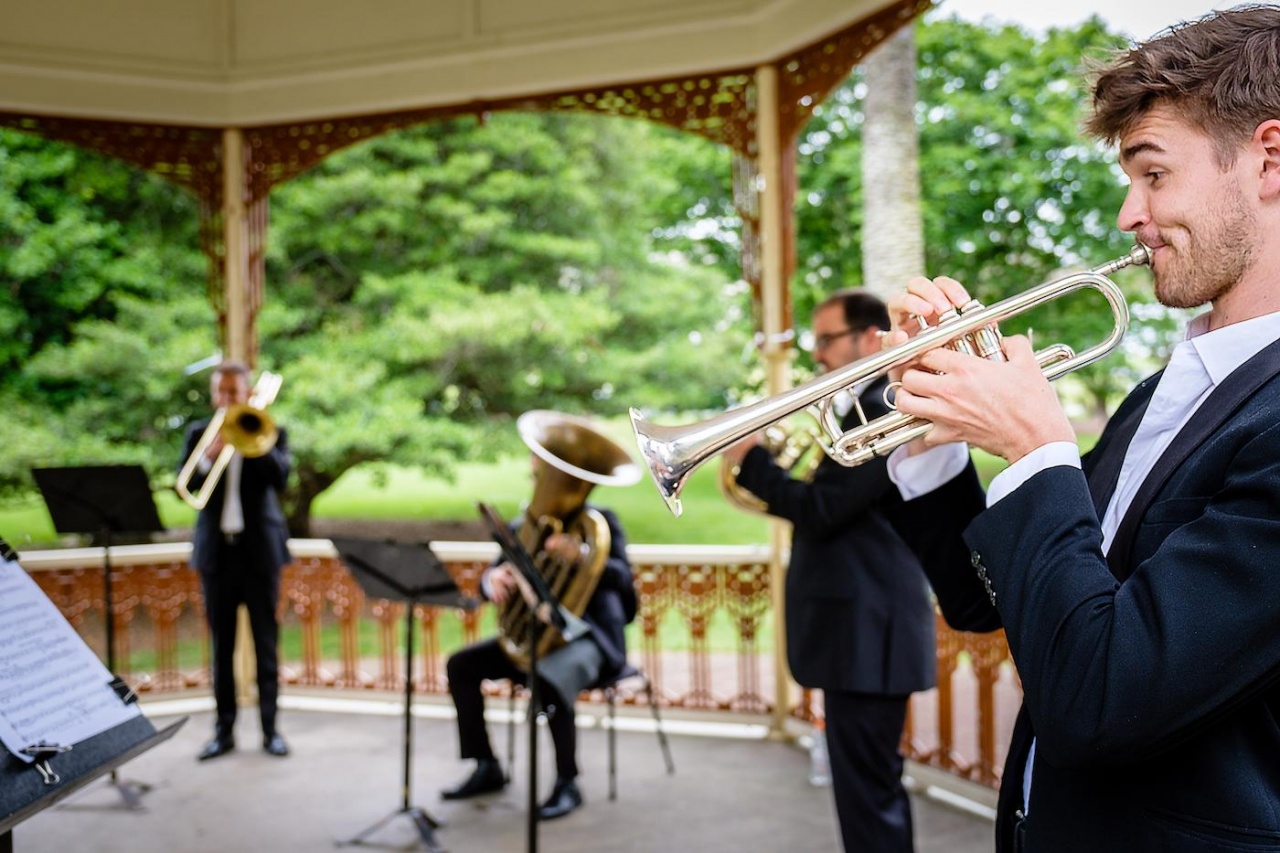Auckland Philharmonia Orchestra hasn’t played live in months. An Auckland Domain film shoot is the APO’s way of reconnecting with its audience this Christmas.
Adrian Malloch casts a professional eye over some film gear and nods in appreciation.
“People think drones are toys but that’s $20,000 worth of equipment and there are four people looking after it,” he says approvingly.
Malloch’s a photojournalist who’s won numerous awards. Here, though, he’s not shooting the main event but capturing the associated goings-on around Auckland Domain’s bandstand.
The four people Malloch is referring to, a videographer/director and assistant from production company Popular, plus a drone operator and spotter from Incredible Images, will take charge and are deep in conversation. Clip-boards are drawn and there’s lots of pointing. One of the people is Benj Brooking, owner of Popular, and the shoot’s director, who is doing flamboyant, director-ly things with his hands.
It seems a lot of effort for a Christmas card. This one is special, though; it will be sent as a filmed thank you to subscribers, sponsors, stakeholders and friends of Auckland Philharmonia Orchestra (APO). Usually, the musicians do their thanking on stage, at the orchestra’s annual Christmas concerts. This year is not usual; the APO has not performed in public since August. Ongoing restrictions mean they still can’t, and won’t until Auckland hits orange on the traffic light scale, but six brass musicians have assembled in socially distanced fashion to perform a medley of carols, their thank you to the people of Tāmaki Makaurau who have sustained them in tough times.
The shoot’s producer is Robin Lane, the APO’s digital content coordinator. He’s worked with the orchestra for two-and-a-half years but trained in film, originally in London, where he did guerrilla shoots with handheld cameras. This is different. The drone means sectioning off a large part of Auckland Domain around the bandstand. Such things require permissions and permits and payments. Lane found the process straightforward. He called Tātaki Auckland Unlimited, which put him on to Screen Auckland’s Jesse Joseph.
“[Screen Auckland] was a dream,” Lane says, so effusive you’d think he’d been prompted. “They were quick to respond and never made me feel like my questions were stupid. I told Jesse what I wanted to do and he just said, ‘Cool, you’re going to need this,’ and emailed me an online application form, which was brilliant.” .
Because the APO’s a charity and partly funded through Auckland Council, Screen Auckland also waived the permitting fee, while Joseph helped to ensure that Lane felt comfortable with industry jargon and instructed him in what was needed to create a drone map – necessary documentation when shooting in the sky.
Everyone, of course, is safety-geared up to the eyeballs and beyond. Brooking, as well as his pandemic-chic face covering, sports a construction helmet and goggles.
Adrian Hollay sits on a park bench 30 metres from the action. He’s masked, wears a high-vis vest and a pair of professional-looking earphones. Next to him rests a large, ominous-looking suitcase. With all his equipment, Hollay has the appearance of a trainee intelligence agent but people who know about these things will tell you he’s one of the best sound guys in the business.
There’s some concern, though, that even he will struggle to capture the music above the buzz of the drone.
“That’s the issue, isn’t it?” he says, shrugging as if to say it’s not really an issue at all, not for him, anyway.
APO bass trombonist Tim Sutton saunters past. It’s the first time he’s performed with his colleagues in months.
“This is great,” he says. “It almost feels normal.” Sutton’s a laid-back guy but he seems genuinely excited to have got the old gang back together. “Musicians feed off each other when they play live,” he explains, “they respond to nuances.”
The players fall into position, the director’s assistant slaps the microphone into life, and the group breaks into its brassy fanfare. Things begin with merry parping but the music really starts to fizz as the sextet settles into its work. The drone lets out a howl and launches, 30, 40, 50 metres above the bandstand.
After a couple of takes, the principals reconvene.
“How did it look?” asks the APO’s Lane.
Good, apparently, but directors are perfectionists by nature and by profession; good doesn’t cut it.
“We’ll do another three, four, five,” says Brooking. “See what we get.”
Images: Adrian Malloch
